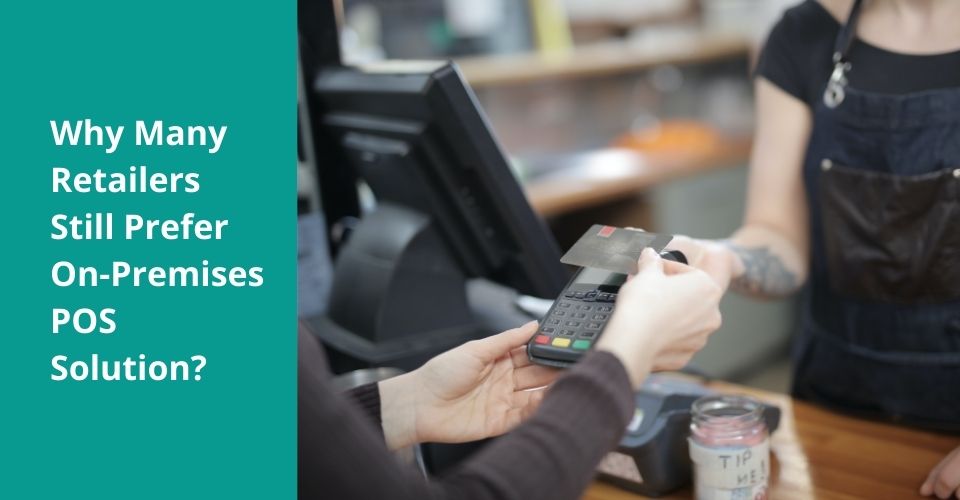On-premises and Cloud-based POS have been compared a lot for retailers to choose the best method for their business. Cloud-based POS is gaining more favor due to its mobility, however, on-premises POS still has a firm foothold in the merchant community. Why is this happening?
Overview
What is an On-Premises POS?
On-premises POS systems, often known as classic POS systems, work within an internal network and save data on local servers. They function similarly to the apps you use on your computer to store files to your local drive. Such tools are acquired in advance, with data only accessible via a local server or via a different online app.
This classic POS system typically aids store operators in implementing a seamless ordering process, optimizing labor, improving marketing, and managing inventory. Many providers, including ConnectPOS, can offer efficient on-premises POS services. They provide a smooth shopping experience and their support team is always online 24/7.
The reasons why On-Premises POS is still the first choice
Extensive display setup
The numerous functionalities of on-premises POS systems, which include accounting and data storage as well as full inventory management and security, are the key reasons for their popularity today. Furthermore, a typical POS system is simple to operate and has touchscreen capabilities, making it an excellent choice for fast-food restaurants and coffee shops.

Purchasing a typical POS is similar to purchasing furniture. These systems, with their 15-inch touch screens, are very big, but they provide users with easy-to-use and dependable touchscreen capabilities. Restaurants, coffee shops, and fast-food restaurants are encouraged to use them.
Downtime avoidance
Nobody wants to be stuck in a rut. After all, important application failure might result in income and client loss. When a company chooses an on-premises POS system, however, this danger is considerably reduced.
On-premise systems, unlike cloud-based programs, allow businesses to continue operating and processing consumer transactions even if they do not have access to the internet. Furthermore, because you won’t have to communicate data for external transactions, on-premises POS systems feature low latency. Businesses can transmit enormous amounts of data online at high speeds thanks to low latency.
►►►► Please visit our products: digital banking, situation analysis, Shopify markets, Vietnam Photography Tour, Photography Tour Guide Viet Nam, supply chain operations management, fintech ai, Multi Store POS, Woocommerce POS, Mobile POS, White label POS, POS Reseller, Beauty Supply Store POS, Retail POS and Vape shop POS
Full data control and security
This is the biggest reason why many big companies still favor on-premises POS.

A non-exclusive and perpetual license is usually available when purchasing an on-premises POS system. This gives you the ability to maintain and customize procedures to meet your business strategy.
Businesses employing classic POS systems can assure optimal resource optimization, boost productivity, and, most importantly, reduce needless wastage thanks to their capacity to be adjusted. Business owners will be able to scale and extend their companies more easily with a customized POS system.
Full system control also entails a deeper level of connection with POS hardware. To put it another way, employing an on-premise solution allows you to seamlessly integrate your processes with various payment devices.
Furthermore, because the hardware is directly interlaced with the ticket system, printers, and cash machines, an in-store solution will enable businesses to diagnose problems immediately. This is a great strategy to avoid income loss which could put your company’s financial health at risk.
Conclusion
Retailers should consider carefully before choosing between an on-premises POS or a cloud-based one for their store. To get more information and tips, call us to find out your best solution.

